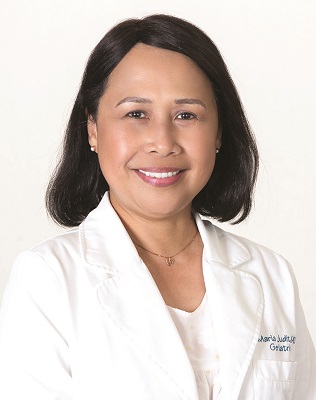A Closer Look at the Dementias, Caregiver Support
11/17/2021
 November is Alzheimer’s Awareness Month and the disease is one of the most common forms of dementia. But did you know there are different types of dementia? Dr. Maria Judit, geriatrician at Northwest Medical Plaza – Springdale, urges caregivers during National Family Caregivers Month to educate themselves on the different types of dementia and to be familiar with signs and symptoms of this disease.
November is Alzheimer’s Awareness Month and the disease is one of the most common forms of dementia. But did you know there are different types of dementia? Dr. Maria Judit, geriatrician at Northwest Medical Plaza – Springdale, urges caregivers during National Family Caregivers Month to educate themselves on the different types of dementia and to be familiar with signs and symptoms of this disease.
“At one time or another, everybody experiences forgetfulness,” Dr. Judit said. “We tend to blame increasing forgetfulness on growing older, however, a healthy senior shouldn’t be any more forgetful than they were as a younger person. Increasing forgetfulness may be the sign of dementia.”
According to the National Institute on Aging (www.nia.nih.gov), there are several types of dementia, including the following:
-
Alzheimer’s disease – Alzheimer’s disease is the most common form of dementia. In this irreversible disease, nerve cells in certain parts of the brain change, causing the death of a large number of cells. A person with Alzheimer’s will have few symptoms at first, but they will progressively become worse.
- Symptoms range from mild forgetfulness to serious impairments in thinking, judgment and the ability to perform daily activities. Though there is no cure, there are things that can be done in the disease’s early stages to slow down its progression.
- Multi-infarct dementia – This second most common form of dementia is also irreversible. Caused by a series of small strokes or changes in the brain’s blood supply that result in the death of brain tissue, multi-infarct dementia (otherwise known as vascular dementia) has symptoms that show up suddenly.
- A person with multi-infarct dementia is likely to show signs of improvement or remain stable for long periods of time, then quickly develop new symptoms if more strokes occur. High blood pressure is what often causes this condition.
- Reversible dementias – Not all dementias are irreversible. Reversible dementias are caused by medical conditions that are treatable.
- Reversible conditions can be caused by high fever, dehydration, vitamin deficiency and poor nutrition, reactions to medicines, problems with the thyroid gland or a minor head injury. Because this type of dementia may be a symptom of a more serious problem, it’s always important to see a doctor if you suspect your memory is lapsing more frequently than normal.
Warning signs of dementia
Dr. Judit advised to speak to a physician if your loved one is experiencing any changes in mood, behavior or memory. Just because a person has a memory issue doesn’t mean it’s always dementia related.
“Certain medical conditions like hypothyroidism, infections, B12 deficiency, stroke or even depression can cause symptoms similar to dementia,” she said. “The good news is these are treatable. But if someone is diagnosed with dementia, finding out early can help you with treatments and support.”
The Alzheimer’s Foundation of America listed these common warning signs of dementia:
- Recent memory loss that is frequent and impacts daily life
- Confusion of time and place, disorientation
- Difficulty performing familiar tasks
- Problems with language such as finding the right words or following/initiating a conversation
- Decreased or poor judgment
- Problems with abstract thinking like forgetting how to add or subtract
- Forgetting where they put things such as putting items in places they do not belong
- Changes in mood and personality
- Loss of initiative
Resources available for caregivers
“Caring for a loved one with dementia can be challenging for caregivers, and it’s important to remember that there are resources available,” Dr. Judit said.
The Alzheimer’s Association offers caregiver education and support on its website: https://www.alz.org/help-support/caregiving. Additional resources also can be found at the Alzheimer’s Foundation of America website: http://alzfdn.org/.
“Your physician is also an excellent resource for any caregiver,” she said. “As a geriatrician, I work closely with the patient, their family and specialists providing a team approach. I schedule more face-to-face time with my patients so I can get to know them better and understand their health needs and goals.”
Geriatricians are medical specialists with training and expertise in the care of older adults recognizing that as people age their needs change. They can address issues such as memory loss, arthritis, osteoporosis, mobility and dementia. To learn more about the geriatricians at Northwest Physicians, visit NW-Physicians.com/geriatric-care today.
Back